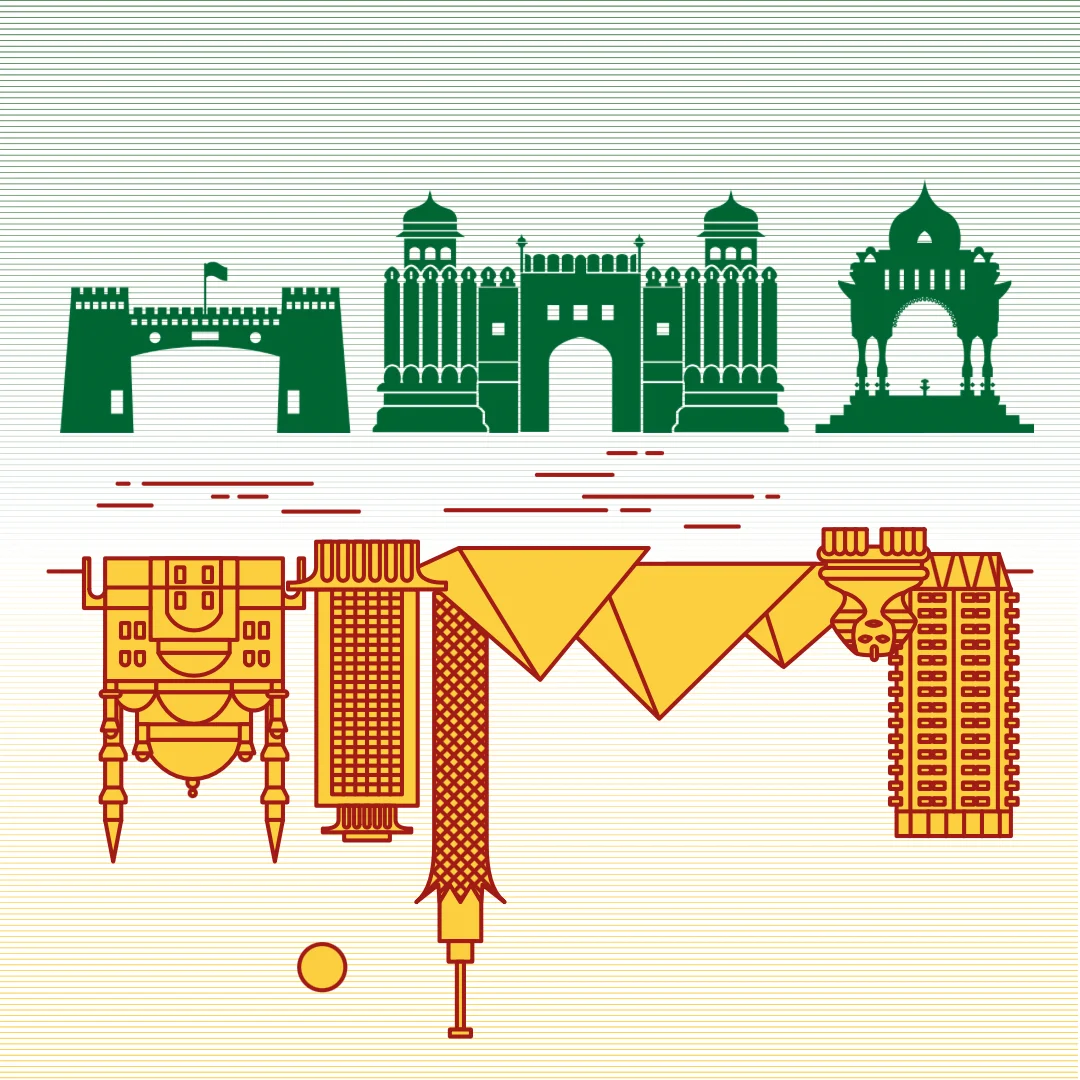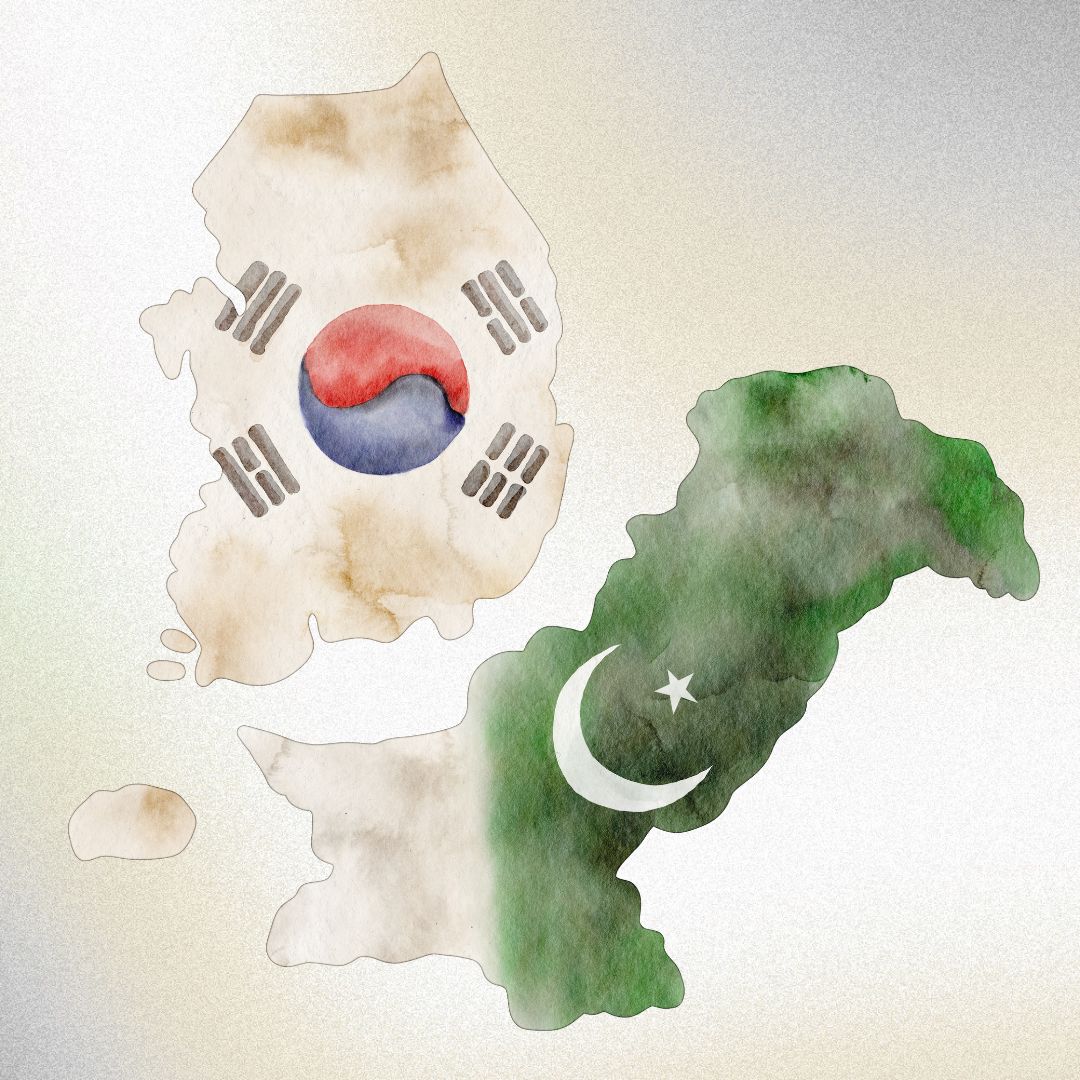Signs of global political and cultural realignment are now fully emergent. The trajectory of their emergence passes through events from the past 25 years – the War on Terror and its effects on Muslim societies, the Financial Crisis alongside growth in Asian economies, and increased migration, particularly to Western countries.
At the time of writing, the US and China were ironing out a new trade agreement, following the global tariff escalation initiated by Donald Trump in his first week in office. Many observers see the Trump-induced disruption to free trade as a watershed moment.
This tariff war and a series of other events are being collectively described as the conclusion of neoliberal globalization. Trade disputes between the US and China, conflict in Europe, the growth of nationalist and populist movements, and the dissolution of a fragile consensus on open borders have come in quick succession. The state's return as not just a guarantor of last resort but as an economic coordinator indicates a world that differs from the neoliberal visions promoted by the Mont Pellerin society, its disciples in mainstream economic departments, and by the powerful and the well-heeled at Davos since the 1980s.
Characterized by deregulation in markets, and trade and financial liberalization, the set of prescriptions commonly dubbed as ‘neoliberalism’ were macroeconomic orthodoxy for nearly four decades. They formed the basis of how economics was taught and how it was preached by economists, think-tankers, policy wonks, and aid specialists.
Yet at their core, these policy interventions were not the mere outcome of intellectual experimentation. Instead, they represented the response of the capitalist class to the stagflation (high inflation, low growth) crisis of the 1970s in Western economies. They sought to dismantle the political power of labour by making it easier to offshore production, and restore the power of capital by opening up new avenues of profit through financialization. The recipe would remain incomplete without access to new labour, product, and capital markets, which is why neoliberalism came packaged as IMF-run ‘structural adjustment’ for countries in the Global South.
What did these four decades of liberalization deliver? Growth for some countries in the Global South (East Asia, parts of Latin America), stagnation and deindustrialization for most others, astronomic returns for owners of finance capital, and heightened inequality nearly everywhere.
Since the 2008 financial crisis, populations in the West rightly soured on this misfiring orthodoxy. To most, it became apparent that these prescriptions work for a select few, while leaving debt-based consumption for everyone else. Gradually, this resentment has made its way into how decision-makers think about their economies.
Evidence of economic insularity and increasing government economic involvement globally, including in Western nations, is mounting. Following China's model of state-directed economic management, countries traditionally opposed to government intervention, including the United States, have implemented forms of industrial policy, particularly in strategic sectors such as battery development, environmental technology, and semiconductor production under the previous administration under Biden.
During a visit to China last year, former United States Treasury Secretary Janet Yellen acknowledged that the free trade principles previously advocated by American financial leadership may have negatively affected American workers. Now with the Republicans in power, the crusade against free trade seems to have been cranked up by quite a few notches.
These transformations will become more evident as developing nations pursue economic advancement through various interventionist strategies. The future pattern appears to be moving toward calculated international engagement rather than unrestricted economic openness.
In their book The Spectre of State Capitalism, political economists Ilias Alami and Adam Dixon point to the return of state capitalism in a number of forms. State-directed development and greater involvement in markets through subsidies and tariffs is one model. However, sovereign wealth funds and strategic state-owned enterprises designed to challenge private actors are others. Whichever blueprints emerge, it is increasingly likely that the neoliberal state, which sought to create private profit across all social space, is giving way to a different variant altogether.
But that is not the end of this story. Neoliberal globalization operated beyond economics, incorporating political and cultural elements to build consensus, particularly among those who did not benefit from its widening reach.
Liberal democracy, for example, was presented as a core value, supposedly maintained by the US globally. However, this commitment varied based on US foreign policy interests. Western nations worked with authoritarian governments when their regional interests needed to be secured. This consensus now appears to be weakening. Democracy today faces challenges in Western countries, with the growth of far-right and populist movements, and its consistent use as a cynical foreign policy stick by the US had already made many in the world wary.
Meanwhile, elsewhere, the appeal of some authoritarian systems is growing. Some countries have generated public support through economic development delivered without democratic participation, making them appear as potential models. Sociologist Cihan Tugal points to Turkey under Erdogan and the AKP, which has used state welfare, economic intervention, and centralized politics to maintain governance. These approaches have helped contain opposition to their leadership over two decades. Despite the specificity of factors enabling growth in certain authoritarian contexts, key political figures in countries like Pakistan often view limits on representation as necessary for economic progress. Collectively it appears that democracy as an ideal is weakening, and authoritarianism is increasingly being misconstrued as a necessity for growth.
Lastly, in the cultural domain, the neoliberal appropriation of representation politics, diversity, and immigration faces resistance both in Western nations and elsewhere. This cultural framework involved selective adoption of inclusion principles, most evident in the US where representation became mostly symbolic without restructuring economic and social systems. The net result is that as economic inequality deepened after the 2008 financial crisis, symbolic representation came under attack from right-wing movements, decrying reverse racism and lost masculine honor.
Today, with these rightwing movements fully ascendant, even modest social justice efforts are being attacked and repealed across much of the Western world. Similar to patterns from the early twentieth century, minority groups and immigrants are left as the most convenient targets for unfulfilled expectations of majority populations. This turn toward nativism in the US and Europe has expectedly produced its own set of mirror images among other communities. With the genocide in Gaza taking place in full view, a retreat to primordialism is spreading across the Muslim world as well, who now openly question multiculturalism and their own place in Western societies.
The changes listed above have emerged gradually through various processes. Current shifts in economics, political structures, and cultural values indicate a deeper transformation, and a final curtain call on the long twentieth century.
Some transformations may be beneficial, such as the renewed form of state-directed economic development that seeks to address inequalities created by neoliberalism. At the same time though, cultural and ethnic isolation raises concerns. In the absence of viable progressive movements to safeguard universal rights, the increased nativism that propelled Trump and so many other populist leaders, will only yield further marginalization of gender and racial minorities.





